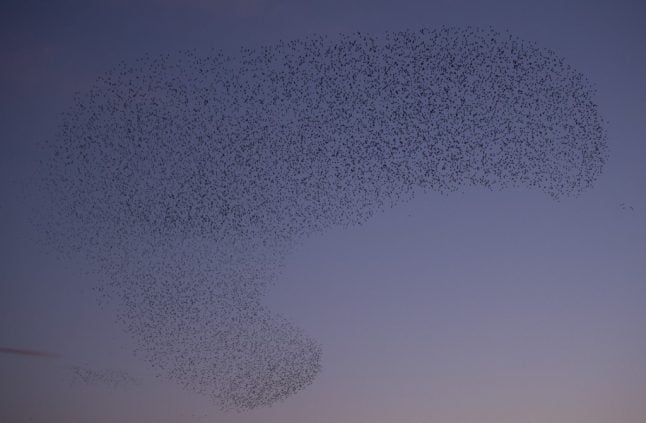The birds were found dead on the tarmac of the C-31b highway between Tarragona and Salou on Sunday afternoon.
?Esto está pasando cerca de la petroquímica de Tarragona,donde hace poco hubo una explosión.Decenas de aves muertas en la carretera…
Llamádme malpensada…pero muy normal no lo veo pic.twitter.com/ezaowurUqM
— Viqui? (@viquirepublica) February 17, 2020
Several drivers reported the unusual massacre to emergency services after coming across the bird carcasses littering the asphalt.
En relació a informacions que han aparegut sobre ocells morts apareguts avui diumenge a Tarragona a la C-31B, el @112 ha rebut una trucada passades les 17.00 h d'una persona que informava que la seva parella havia trobat força ocells morts a la carretera.
— 112 (@112) February 16, 2020
The bird deaths have been reported to the Catalan police force and a unit dedicated to rural crime are investigating.
Estem investigant les causes de la mort dels estornells a Tarragona.
Els ocells han estat traslladats al Centre de Fauna de Torreferrussa per procedir a la necròpsia i esclarir els motius de la mort.#centresdefauna https://t.co/HKfOHBXZqr— Agents Rurals (@agentsruralscat) February 17, 2020
The dead birds have been sent for analysis to study the cause of death in the hope of solving the mystery.
Local environmental groups speculated that the deaths may have had something to do with toxins in the air in view of the fact that there are several large petro-chemical plants in the vicinity, which is close to the site of a recent explosion.
⚠️Ocells morts avui a l'autovia entre Salou i Tarragona, vora el polígon sud de la petroquímica, amb testimonis parlant també de fortes olors.?☠️?Si tens qualsevol informació contrastada, escriu-nos al correu [email protected]. Gràcies!
?: Autor/a desconegut/da pic.twitter.com/RZuVo8NfR3
— GEPEC-EdC (@gepecedc) February 16, 2020
The GEPEC ecology group said witnesses in the area had reported “strong smells” although a tweet from emergency services seemed to contradict that.
Such mass deaths of starlings, known as 'estorninos' in Spanish are not unusual and can occur completely naturally.
A similar incident in Anglesey in Wales just before Christmas also produced head-scratching amongst local detectives before the investigation concluded that the birds had died on impact with the road while trying to escape a predator.
Starlings often flock together in their thousands to form what is known as a murmuration, an amazing sight most often visible just before dusk as the birds search for a place to roost.
The ariel acrobatics of a starling murmuration are breathtaking to behold – have you ever seen one? @BBCSpringwatch #Winterwatch pic.twitter.com/b0T4Kh2jRN
— RSPB (@Natures_Voice) January 30, 2020
But if the group is targeted by a bird of prey, such as a peregrine falcon, it can send the murmuration into evasive action which may disorientate the birds and cause fatalities if they fail to pull up in time to avoid impact with the ground.
That was the conclusion from the incident in Anglesey with a statement from police there stating: “It’s highly likely the murmuration took avoiding action whilst airborne, from possibly a bird of prey, with the rear of the group not pulling up in time and striking the ground.”
But it appears that in the case of the Tarragona starlings it was a vehicle colliding with the murmuration after the birds flew too close to the road that led to the mulitple deaths.
On Wednesday it emerged that footage recorded on CCTV had captured the moment of the collision.
READ MORE: Why have thousands of dead fish washed up in southern Spain?



 Please whitelist us to continue reading.
Please whitelist us to continue reading.
Member comments